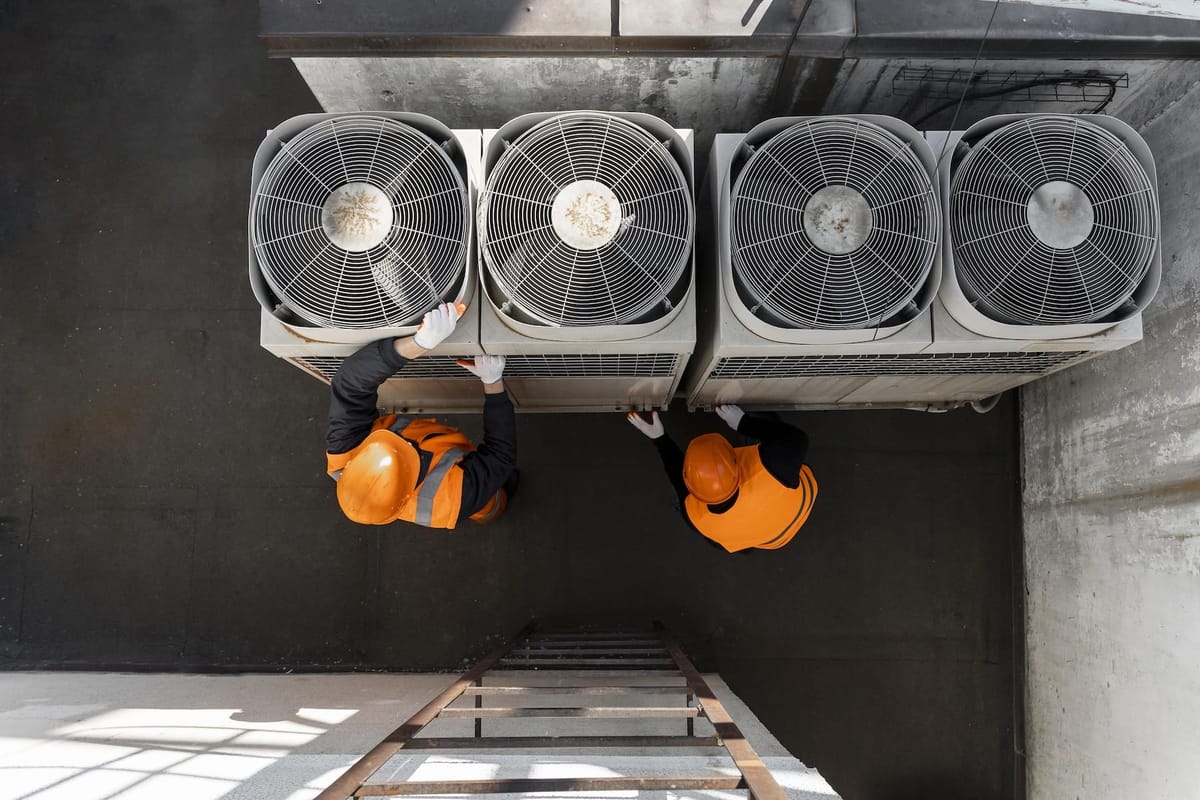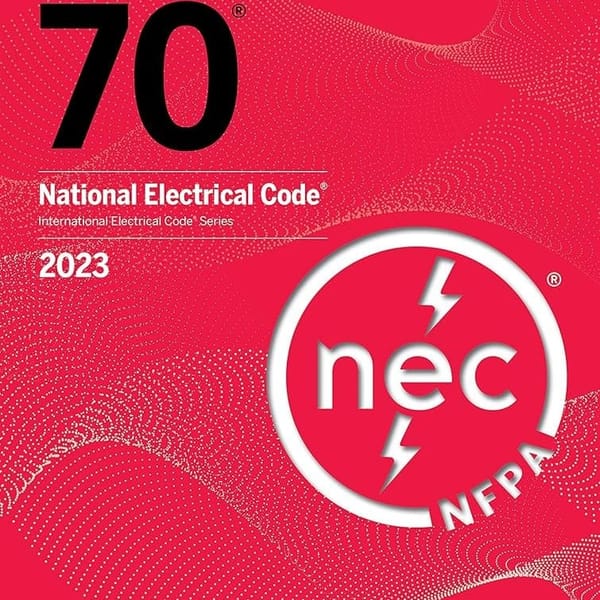Texas HVAC License Renewal: What You Should Know

If you're a licensed HVAC technician in Texas, staying compliant with state regulations isn't optional—it’s essential. Whether you're running your own HVAC business or working for a contractor, you must renew your license regularly to keep serving clients legally and professionally.
Timely HVAC license renewal in Texas ensures you maintain your credentials and stay up to date with safety codes and industry standards. This guide covers everything HVAC professionals in Texas need to know about renewing their license, including continuing education (CE) requirements, approved course options, and common renewal pitfalls to avoid.
Understanding the Texas HVAC (ACR) License Renewal Requirements
Renewing your HVAC license in Texas isn’t just a matter of paperwork—it's a professional obligation that directly impacts your ability to work legally in the state. The Texas Department of Licensing and Regulation (TDLR), which oversees licensing for HVAC contractors and technicians, has specific requirements in place to protect consumers and maintain industry standards.
These regulations are designed to ensure that every licensed HVAC professional remains knowledgeable and up to date on state building codes, safety protocols, legal responsibilities, and advancements in heating, ventilation, and air conditioning technology.
Whether you're a seasoned contractor or newly licensed, understanding these renewal requirements is essential to keeping your license active and your reputation intact.
Annual CE Hours Required
One of the central components of HVAC license renewal in Texas is continuing education (CE). TDLR mandates that all licensed HVAC professionals must complete 8 hours of CE training annually. This is not optional—even if you work part-time, are semi-retired, or haven't actively taken on projects in the past year, you’re still expected to meet this CE requirement.
The structure of these 8 hours is clearly defined:
- 1 hour must focus on Texas laws and rules that directly affect HVAC work. This ensures every licensee understands current regulatory frameworks, compliance issues, liability protections, and administrative procedures.
- 7 hours must cover technical, code, or safety-related topics, which can include system design, energy efficiency, refrigerant handling, new technologies, building codes, environmental regulations, and best practices for safe installation and repair.
This structure guarantees that HVAC professionals remain not only legally compliant but also technically competent in a fast-evolving industry.
These CE hours must be completed before your license expiration date. There are no grace periods for CE completion, and the hours must be taken from a TDLR-approved provider for them to count toward your renewal. Skipping or delaying these hours can result in license suspension, late fees, or even the need to reapply as a new licensee if too much time has passed.
In short: CE is a non-negotiable part of maintaining your professional standing in the HVAC industry in Texas.
Who Needs to Renew
The renewal requirement applies to all holders of an Air Conditioning and Refrigeration (ACR) contractor license issued by the TDLR. This includes professionals working in:
- Residential HVAC systems
- Commercial heating and cooling
- Environmental control systems
- Industrial refrigeration and cooling installations
Even if your license type is specialized or restricted to a certain class—such as Class A or Class B licenses—you are still subject to the same annual CE requirements.
Importantly, you must renew every year, not every two years or on a rolling schedule. The license renewal cycle is based on the individual license expiration date assigned to you when you were first approved by the TDLR.
Also note: you must renew even if you are not currently active in the field. Many technicians make the mistake of allowing their license to expire simply because they’re taking time off or working in a different sector. However, letting your license lapse can create complications when you’re ready to return to the field. You might face re-examination requirements or higher renewal fees if you allow your license to remain inactive for too long.
Whether you're a business owner managing a team of technicians or a solo contractor with your own client base, staying on top of your renewal obligations is key to protecting your livelihood.
Finding and Choosing TDLR-Approved CE Courses
Not all CE providers are the same, and not every course will qualify. Choosing a TDLR-approved course is mandatory. Enrolling in a non-approved course is a waste of time and money—your hours won’t count toward license renewal.
What to Look For in a Provider
When searching for a CE course, make sure the provider:
- Is officially approved by the TDLR
- Displays a valid Provider Number and Course Number
- Offers courses specifically for HVAC (ACR) license renewal
The course should be clearly labeled for HVAC license renewal and show it meets the 8-hour requirement. Many reputable providers also offer packages that include all 8 required hours in one course.
Ideal Course Features
Look for a course that offers the following benefits:
- Self-paced learning, allowing you to complete the course at your convenience
- Mobile and tablet accessibility, so you can study from any device
- No final exam, which is allowed under TDLR rules
- Instant certificate access upon course completion
- Automatic reporting to TDLR, which saves you the step of uploading documents
These features make the CE process smoother and help avoid delays with your renewal.
Step-by-Step Guide to Renewing Your HVAC License
To simplify the process, many professionals turn to Abba Training, a trusted provider of TDLR-approved continuing education for HVAC technicians across Texas. Renewing your Texas HVAC license doesn’t have to be a stressful process—especially when you follow these simple steps.
Step 1: Complete the 8-Hour CE Course
Start by enrolling in a TDLR-approved continuing education course that includes:
- 1 hour of state laws and rules
- 7 hours of technical or safety training
Make sure to complete the entire 8 hours before your license expiration date. Save your completion certificate once you finish.
Step 2: Ensure Provider Reports Your Hours to TDLR
Most high-quality CE providers will report your completed hours directly to the TDLR within 24–48 hours. However, it’s still your responsibility to confirm that your hours have been submitted. You can check your CE status by logging into your TDLR account.
If your provider does not offer automatic reporting, you’ll need to submit your certificate manually during the renewal process.
Step 3: Submit Your License Renewal Application
Once your CE hours are completed and reported, you can log in to the TDLR online renewal system to:
- Fill out the renewal application
- Confirm your completed CE hours
- Pay the renewal fee (usually around $65, depending on your license type)
You’ll receive confirmation once your renewal is processed, and your license will remain valid for another year.
Common Pitfalls and Penalties to Avoid
Renewing your HVAC license might sound simple, but many technicians run into trouble by overlooking a few key details. Here are the most common mistakes—and how to avoid them.
Mistake 1: Missing the CE Deadline
If you don’t complete your CE hours before your license expires, your renewal will be delayed. In Texas, working with an expired license is illegal and could result in fines or license suspension.
To avoid this, aim to complete your CE at least 30 days before your renewal deadline. This gives time for your hours to be reported and your application to be processed.
Mistake 2: Taking the Wrong Course
Not all CE courses are approved by TDLR. If you take a course without verifying its approval status, your hours won’t count—and you’ll have to start over. Always check for:
- Provider Number
- Course Number
- HVAC-specific CE designation
If this information isn’t clearly stated, choose another provider.
Mistake 3: Not Keeping Records
Even if your CE provider reports your hours, it’s smart to keep a copy of your completion certificate in your records. If TDLR requests verification, you’ll have what you need.
Keep certificates for at least two years in case of an audit.
How CE Training Supports HVAC Professionals
Continuing education isn’t just about meeting a legal requirement—it’s a chance to sharpen your skills and stay ahead of the curve.
Stay Updated on Code Changes
The HVAC industry is constantly evolving. Every year, new standards for efficiency, ventilation, and safety are introduced. CE courses keep you informed about these updates so you can work confidently and avoid code violations.
Maintain Professional Credibility
Clients and employers trust licensed technicians who stay up-to-date on their knowledge and certifications. Completing your CE hours on time reinforces your commitment to professionalism, safety, and service excellence.
Protect Your Business
For independent contractors and business owners, keeping your license current means protecting your company’s reputation. Working with an expired or suspended license could lead to legal issues and loss of clientele.
Final Thoughts: Stay Compliant, Stay Competitive
Your HVAC license is more than a piece of paper—it’s your pathway to earning, growing, and building a solid reputation in the Texas market. By staying on top of your license renewal requirements and choosing quality CE training, you position yourself for continued success.
Remember:
- Complete 8 hours of TDLR-approved CE every year
- Make sure the course includes 1 hour of laws and rules
- Choose a provider that offers self-paced, accessible learning
- Submit your renewal application before your license expires
- Keep a copy of your completion certificate for your records
Renewing your Texas HVAC license doesn’t have to be complicated. With a bit of planning and the right training partner, you can meet your CE requirements with confidence and keep doing what you do best—serving customers, solving problems, and maintaining safe, efficient systems across the state.
Have questions about HVAC license renewal in Texas? Contact us today — we're here to help!
FAQs for Texas HVAC Technicians
How many CE hours are required annually?
HVAC license holders in Texas must complete 8 hours of continuing education each year, including 1 hour on Texas laws and rules.
Is online CE accepted?
Yes. Online CE is fully accepted by TDLR as long as the course is approved. You can complete your training from home, at your own pace.
What happens if I miss the renewal deadline?
You may be charged a late renewal fee, face a lapse in license status, or be required to stop working until your license is reinstated.
How do I confirm a course is approved by TDLR?
Check that the course provider lists a valid TDLR Provider Number and Course Number. You can also verify with the TDLR directly if you’re unsure.
Can I take the same course every year?
Yes. As long as the course is current and approved, you can repeat it annually to meet your CE requirement.





